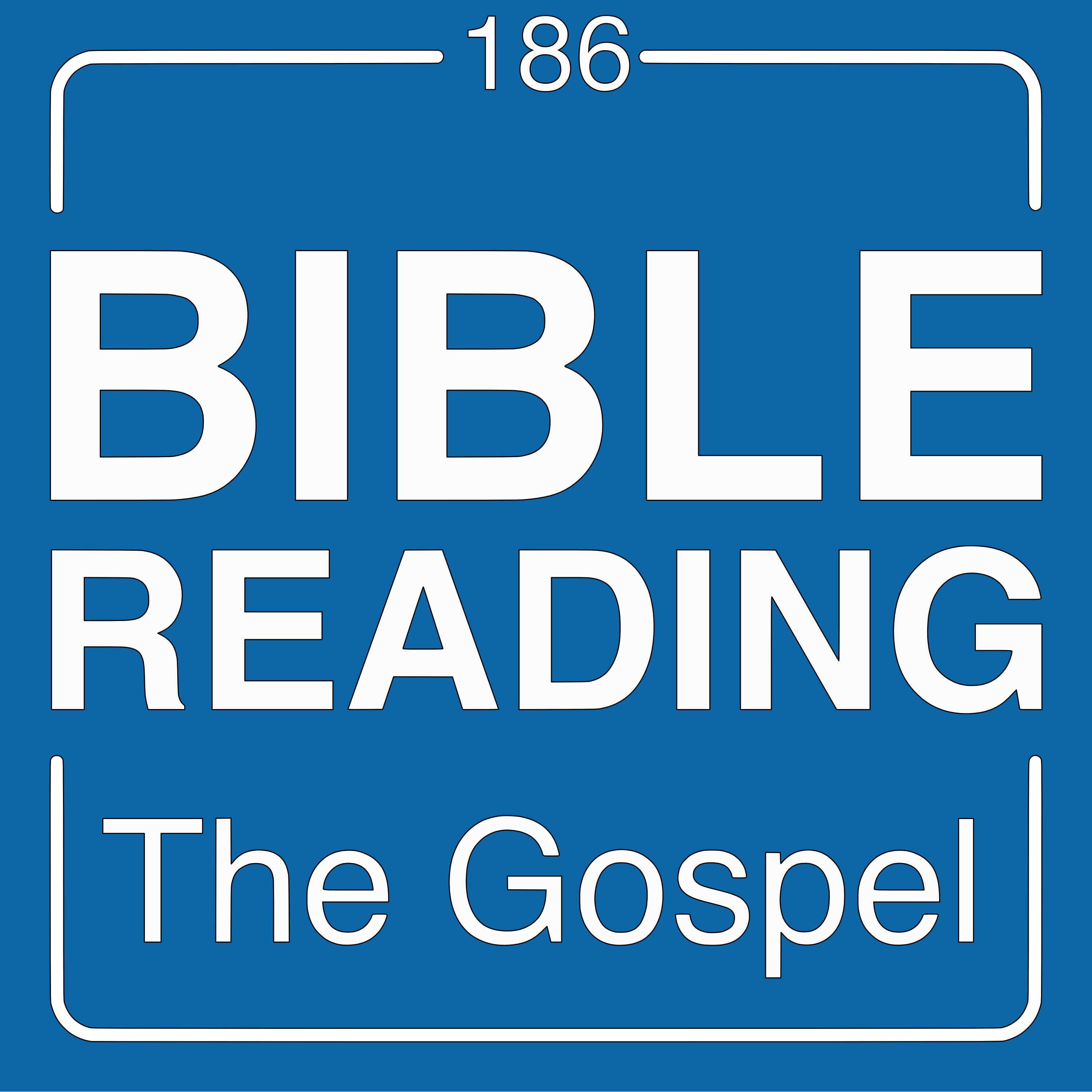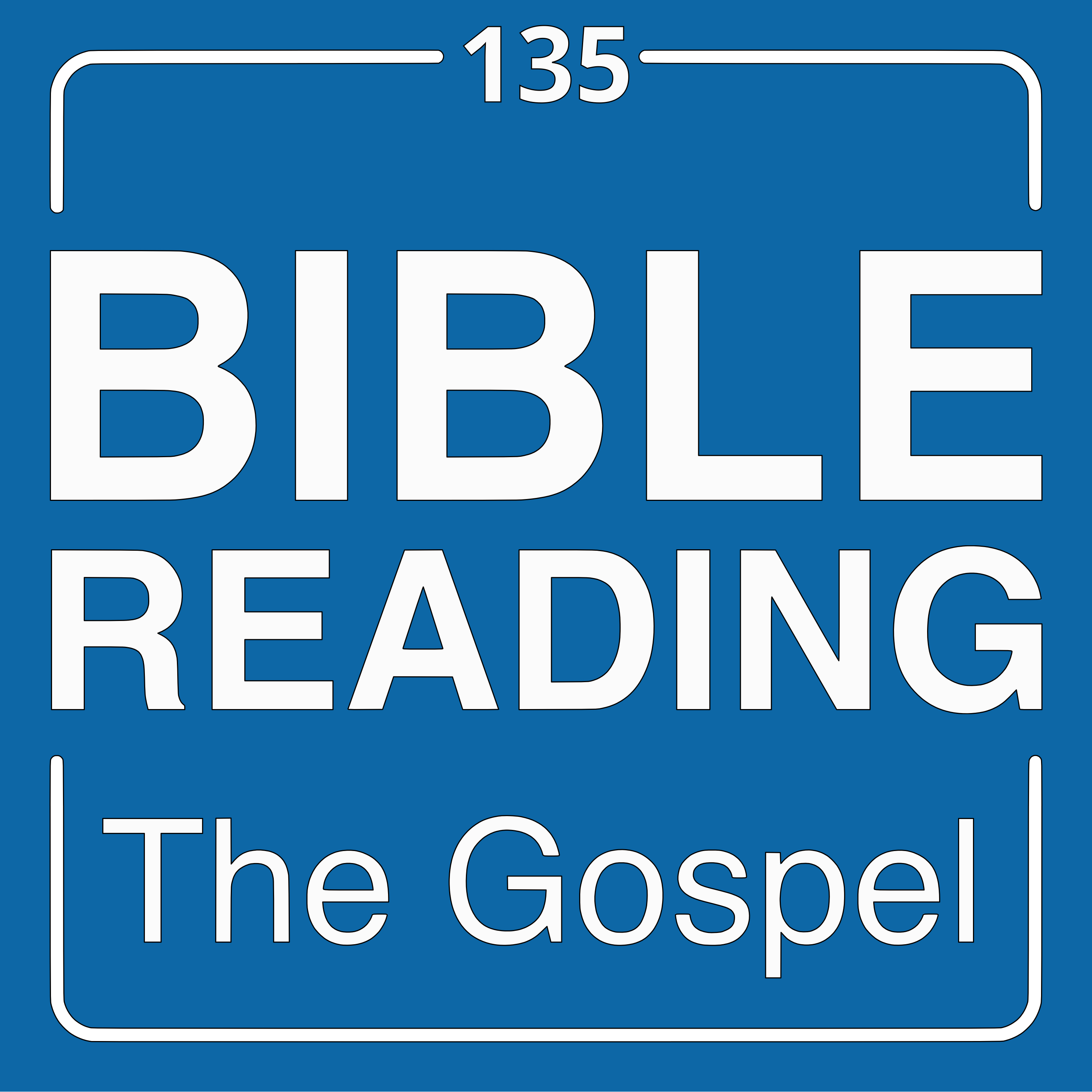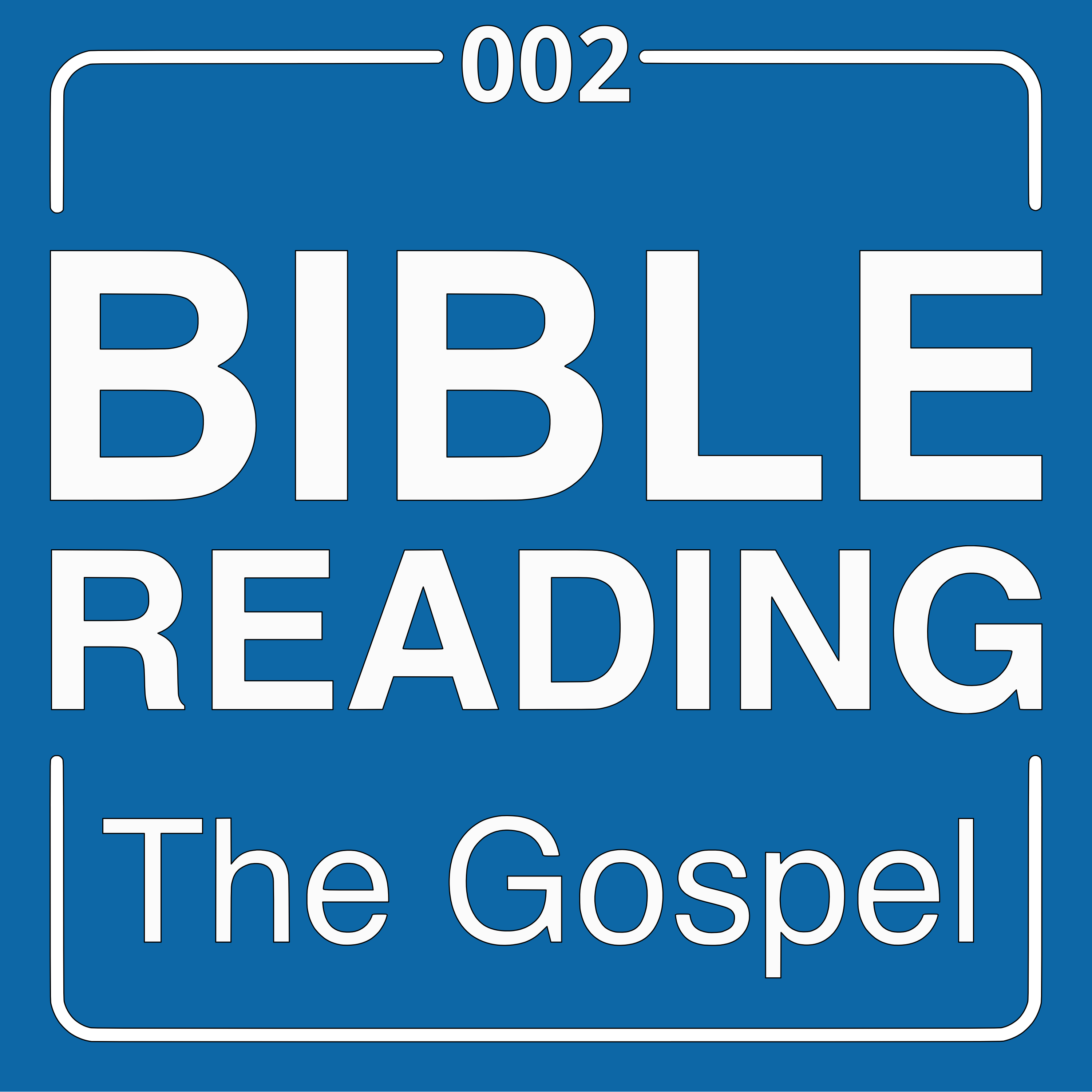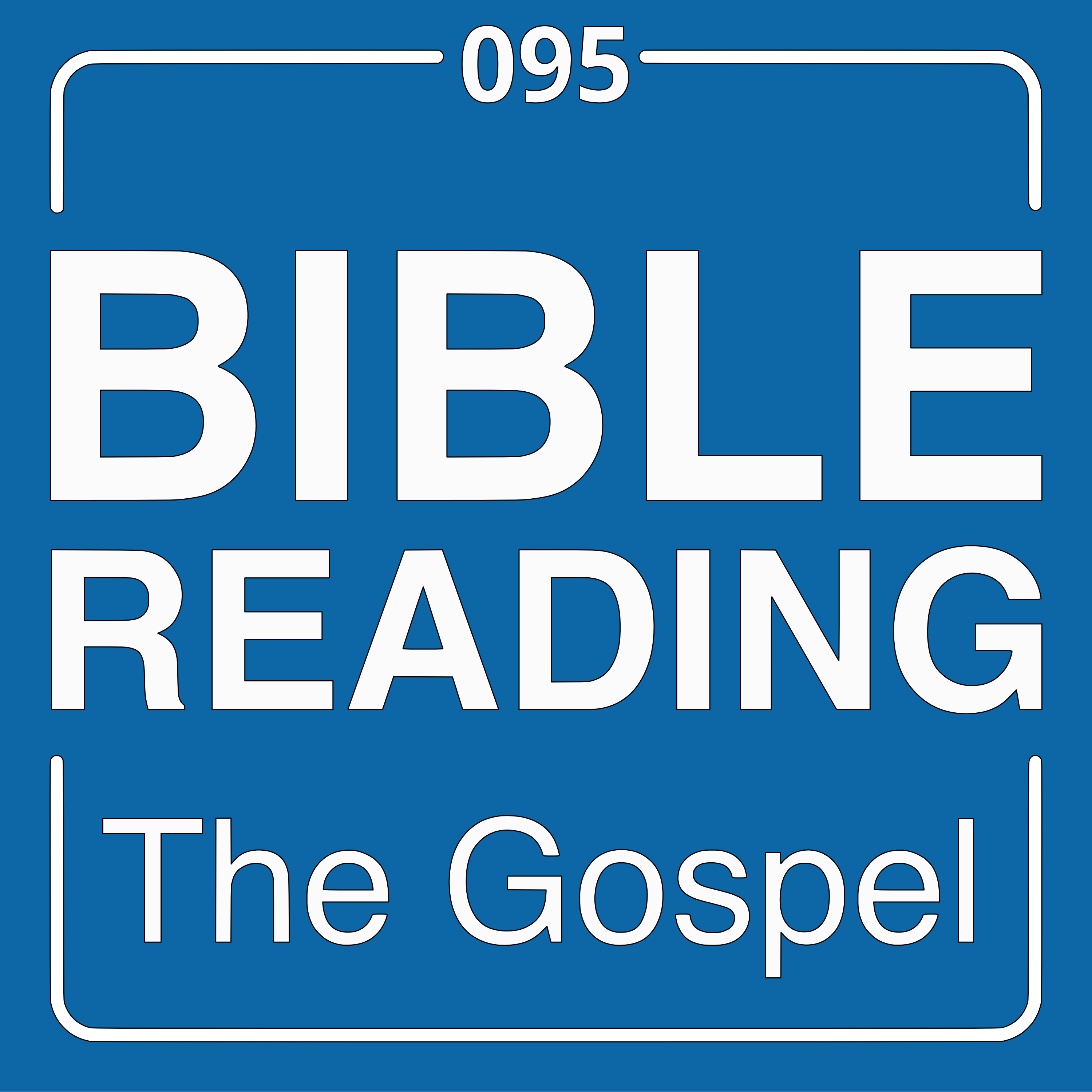Episode Transcript
[00:00:24] Speaker A: Hello, I'm Josh.
[00:00:25] Speaker B: And I'm Gabriel.
[00:00:26] Speaker A: And today on reading the Gospel, we are studying the event, the death of Jesus. This is found in all four Gospels in Matthew 27, 45, 56, Mark 15, verses 33 through 41, Luke 23, 44, 49, and John 19, 28, 37.
Follow along with us as we read out of the Gospel of Matthew, chapter 27, beginning in verse 45.
[00:00:57] Speaker B: Now, from the sixth hour, there was darkness over all the land until the ninth hour.
In about the ninth hour, Jesus cried out with a loud voice saying, eli, Eli lama sabakstane.
That is my God. My God, why have you forsaken me?
And some of the bystanders hearing it, said, this man is calling for Elijah.
And one of them at once ran and took a sponge filled with sour wine and put it on a reed and gave it to him to drink.
But the other said, wait, let us see whether Elijah will come to save him.
And Jesus cried out again with a loud voice and yielded up his spirit.
[00:01:43] Speaker A: And behold, the curtain of the temple was torn in two from top to bottom, and the earth shook and the rocks were split. The tombs were opened, and many bodies of the saints who had fallen asleep were raised. And coming out of the tombs after his resurrection, they went into the holy city and appeared to many. When the centurion and those who were with him keeping watch over Jesus saw the earthquake and what took place, they were filled with awe and said, truly, and this was the Son of God.
There were also many women there looking on from a distance who had followed Jesus from Galilee, ministering to him, among whom were Mary Magdalene and Mary, the mother of James and Joseph, and the mother of the sons of Zebedee.
This event, Jesus is on the cross. And we've mentioned this a number of times, the death of Jesus does not come because of the crucifixion. Crucifixion would take days and a long time for people to die. It was a torture device created to bring the most amount of pain possible.
And in John it talks about the Roman centurions coming by and. And piercing his side with a spear. And the reason why they did this was the Romans had an agreement with the Jews that they wouldn't leave bodies up to be crucified over the Sabbath hours. And so whoever was not yet dead, they would go and finish off so that they could be brought down from the cross so no one would be dying over Sabbath.
But when the the centurions get to Jesus, he's already dead.
So it was not the cross, it was not the centurions who killed Jesus. But it is the weight of the sin, the separation from God.
[00:03:46] Speaker B: And this is why Jesus Christ is quoting from Psalm 22, quoted directly in Hebrew.
My God, my God, why have you forsaken me?
Jesus Christ started taking our sins upon himself since the garden of Gethsemane.
[00:04:05] Speaker A: Yes.
[00:04:06] Speaker B: So now Jesus Christ took our sins upon himself.
The sins from people who lived before him in his time and even people who would live in the future after the death of Jesus Christ.
And the burden of sin was experienced not only as crushing, but as a wall of separation between God and him, between God as the fountain of life, the originator of life.
And when we unplug ourselves, let's suppose that we are a machine, like a robot, and we unplug ourselves from the source of power, we die.
And this is the second death.
It is disconnection from the source of power.
And Jesus Christ has experienced that not only the first death, but the second death, that is separation from God.
[00:05:01] Speaker A: Yeah, which brings up a little tangent here.
That there are people who believe at the end times, before Jesus comes, will be separated from God.
That after the Bible says, let the just be just still, the unjust be unjust still, that they will be separated from God. And the bottom line is if they were, they would die.
That we cannot be separated from God. Jesus, when he was on the cross, he. He's going through. And it is this separation, this carrying of the load of sin, this separation from God, that. That leads to him dying.
There are some in the crowd. There's someone in the crowd who takes pity on Jesus and goes to. To give him a sponge filled with sour wine.
This is wine and vinegar.
[00:05:54] Speaker B: It's used as an anesthetic.
[00:05:56] Speaker A: Yeah, yeah. But Jesus refused to take it.
And immediately after this, Luke actually tells us this, what Jesus says, because it says, he cried out again in Matthew.
In Luke, it says, into your hands I commit my spirit.
[00:06:12] Speaker B: Jesus experiences separation from the Father, and at the same time he talks to the Father, he goes to the Father.
Jesus experience here is like our experience as human beings. The same is Job's experience in the Old Testament.
We run from God to God. It is like little kids, right? If the mom wants to, you know, discipline them, to punish them, they run from the mom to the mom because they didn't have another place to go.
[00:06:46] Speaker A: There is one area that's interesting. We skipped over it in the beginning.
Now, from the sixth hour, there was darkness over the land till the ninth hour. So Jesus as he's going through the cross, he's feeling this separation from God.
But in the Bible, when we see the darkness, you know, I think of Mount Sinai, Moses. When God came down to be with Moses on Mount Sinai, he shrouded the mountain in darkness. And so I imagine that this darkness covered God. God didn't want to sit up in heaven. He was right there, right next to Jesus here on this earth in that darkness.
[00:07:23] Speaker B: But most likely he was silent.
[00:07:25] Speaker A: Yeah.
[00:07:26] Speaker B: Let the nature speak.
The sound of the earthquake, of, you know, thunders or whatever it was.
[00:07:33] Speaker A: Yeah.
[00:07:34] Speaker B: And it's very interesting what happens at that earthquake.
Verse 52, the last part of 51. And the earth shook and the rocks were split, and tombs also were open. And many bodies of the saints who had fallen asleep were raised and coming out of the tombs after his resurrection, they went into the city and appeared to many.
I don't know who these saints are. Most likely, you know, from before Jesus Christ, those who put their trust in him.
And also, it's a very interesting detail.
The tombs open, but people came out of the tomb only after resurrection.
[00:08:21] Speaker A: Yeah.
[00:08:22] Speaker B: So technically, the tombs stay open on Friday afternoon, the whole day of Sabbath, until Sunday morning.
The way this story is being related here, it is a list of proofs which support that the death of Jesus Christ was a real event, that it happened. You have a number of witnesses here, and one of them, this unspoken witness, is the open tombs, which for sure, see an open tomb, something is going to happen.
Will draw your attention.
[00:09:03] Speaker A: Yeah.
There's another event that takes place during that. The temple, the curtain separating the holy place from the most holy place, where the Ark of the covenant rests. The. The mercy seat of God.
It's ripped from the top to the bottom. It's interesting that it says top to bottom. Why?
[00:09:24] Speaker B: Because if it was from the bottom to the top, maybe someone could have ripped it. Right. Or maybe someone was hiding on the other side of the curtain. Right. But from the top, it is the hand of God.
[00:09:35] Speaker A: Yeah.
[00:09:35] Speaker B: What was the purpose of this curtain? Why this curtain is being mentioned here?
[00:09:40] Speaker A: Well, so this sacrificial system in the Old Testament that was set up by God through Moses, where, you know, originally it was a tent, a tabernacle in the wilderness that they carried around.
This was a system set up to show the process of atoning for sin, salvation. Yeah. What happens to our sin? So a sinner would come in and lay their heads on a lamb. Hands on the head of a lamb. Excuse me. And then sacrifice it.
The blood would be taken and spread throughout the temple.
But then the priests would go in, there was ministering during the each day in the holy place. And once a year there's a service that took place, the cleansing of the temple. So all these pointed towards what Jesus and God is doing for our salvation.
You know, Jesus is the lamb that was slain for us. We know that it also in Hebrews says he's our high priest. And so when this curtain is is ripped in half, then no longer did we need to go to the priests on earth. No longer do we need to sacrifice animals because Jesus was the perfect sacrifice.
Everything else pointed to Jesus. Those lambs pointed to Jesus. And now Jesus died and we no longer needed to do that.
[00:11:09] Speaker B: Also I like to mention a detail, historical detail, detail that according to Josephus, the Jewish historian, the high priest, the only person allowed to go into the most holy place beyond that curtain and only once a year.
So just in case God will not receive his prayer and his sacrifice and he would die, they tied a rope on his leg to pull him out because nobody was allowed to walk or to enter beyond the curtain.
So this time the curtain was completely broken and those people did not die.
And this is a very strong argument that the sacrificial system reached fulfillment because Jesus Christ was the real lamb of God. And after that, you don't need the symbols or the types of the Old Testament.
[00:12:10] Speaker A: Yeah.
And so this again, this terrible event is also the most beautiful event that we.
It was my sins and your sins. It was everyone's sins throughout all of humanity that Jesus died on the cross. For the Bible says we all are predestined for salvation. When Jesus went to the cross, he died for everyone.
And if we accept that death, then we can have eternal life. And Jesus died not just for the sins I committed in the past, he died for the sins I will commit in the future.
[00:12:52] Speaker B: And I want to mention that in verse 54, the centurion that is the leader of those hundreds, cruel hundreds Roman soldiers who executed all these criminals. The centurion watching Jesus Christ and saw the earthquake and they realized how Jesus Christ died completely different. Talking to his father with a burden on his heart.
They filled with awe, said, truly, this one, the son of God, maybe this would be the most beautiful word Jesus Christ would hear that day.
This indeed was the son of God. Yeah, maybe it was a little bit too late. Jesus Christ didn't hear this word, but the real transformation of the centurion happened. It was a real experience.
And that statement was a statement of faith among the mocking and among the staying away and you know, those crying, crucify him. Crucify him.
[00:14:15] Speaker A: Let's pray.
Father God, may we be like that centurion. May we be like the thief on the cross. May we be like the women who supported Jesus at the tomb. Wherever we are in our life, whether we follow Christ now or whether we've rejected him and worked against him, may we now turn to him, seek forgiveness for our sins and desire to do right.
Father, we thank you for this gift. And we ask that Jesus will remember our names on that day when he comes again.
And that we will be able to spend eternity with you. In Jesus name we pray. Amen.
[00:14:58] Speaker B: Amen.
Sa.



